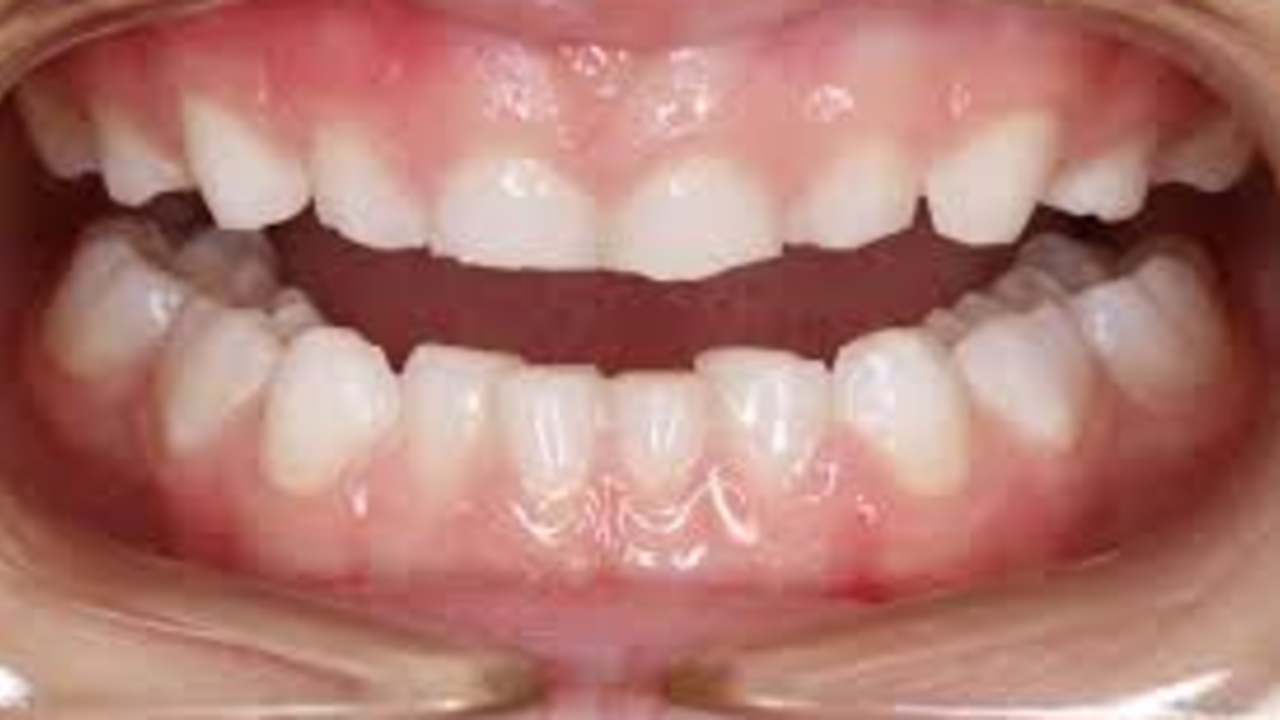Teeth Grinding

While teeth grinding (also known as bruxism) is usually thought of as an adult problem, it affects many kids. If your kid is grinding his or her teeth, you need to take action now.
Worn teeth due to teeth grinding may also mean lack of oxygen to the brain. Sleep is crucial for your child’s brain growth – your kid’s dental health is a great sign of this.
Teeth grinding is a sign of “arousals” during sleep. These arousals are related to when your kid sleeps, their muscles relax and airways close. If the airways close, the brain then pushes the child’s jaw forward, causing ‘bruxing’. Teeth grinding is the brain trying to open the airway.
Teeth grinding often won’t wake a child up. However, these periods disrupt your kid’s sleep. The arousal is a sign that a kid’s brain is in oxygen deprivation. It may also show a lack of high quality sleep that is crucial for a kids brain.
Your kids’ dental health is an important sign of night time breathing. If they suffer from teeth grinding, they can suffer later in life. They may also suffer from anxiety, poor behavior, restlessness and hyperactivity. These symptoms can often be wrongly diagnosed as ADHD.
If you or your child/teen have sleep problems, I might be able to help you find some solutions with only a little information from you. With a state-of-the art sleep screener, it can help identify and correct ~ 87% of the major and most common sleep disorders in children and teens.
First, you need to ask yourself if your child or adolescent has any of the warning signs of a major sleep disorder that are listed below:
RED FLAGS of a Sleep Disorder:
- Snoring in Sleep?
- Difficulty Falling Asleep or Staying Asleep?
- Kicking or moving around often in sleep?
- Nighttime bedwetting?
- Choking, gasping or snorting in sleep?
- Too active or too tired in daytime?
- Irritable or temperamental?
- Difficulty awakening?
- Staying awake too late at night?
- Open mouth breathing in day or nighttime?
- Little sleep attacks or excessive daytime sleepiness?
- Breathing stops briefly or for many seconds during sleep?
- Distractible/Difficulty concentrating on homework or difficult tasks?
- Learning or memory problems?
- Behavior problems or more irritability than others of the same age?
Major sleep disorders need to be identified and corrected as soon as possible because most of them cause either cognitive (memory and processing problems), learning, behavioral, and/or health problems. These sleep problems can significantly impair your child's school performance, health and safety.
If you are interested in identifying your child's sleep problems with 86%-96% accuracy (when compared with overnight sleep study results), and about 80% accuracy for adults, then you may want to read more below about an on-line sleep screener.
Within 10-15 minutes, you can be on your way to solving most sleep problems that disrupt sleep and could be seriously impairing you or your child's health, cognitive functioning, learning, behaviors, and/or jeopardizing safety. It could also save you or your child lots of sleep deprivation and struggles with irritability, oppositional behaviors, poor concentration, and low academic achievement if the sleep disorder is corrected! It could even save you from falling asleep at the wheel while driving and injuring or killing yourself and others! Once a sleep disorder is corrected, the child, teen, or adult will feel much happier, energetic, motivated, and able to concentrate on difficult learning tasks or work!
The SDIS and one other non-English screener are the only two sleep screening inventories out of https://www.sleepdisorderhelp.com/media/Image/ScreeningResultsGraph-150.jpg thousands of sleep screeners developed worldwide for children and adolescents that used all 11 recommended steps of proper development and validation, which resulted in high reliability and good validity (accuracy) (Spruyt & Gozal, Sleep Medicine Review, 2011).

Click here to take a FREE comprehensive screening for your child or for an adult screening
My Orofacial Myofunctional Therapy programs include:
1. Habit elimination therapy.
2. Exercises to improve nasal breathing and oral facial functions.
3. Teaching and promoting proper chewing, breathing, and swallowing.
4. Re-patterning head and neck posture problems.
5. Generalization and habituation of the new muscle patterns.
6. Emotional balancing
Parental involvement is very important to a child's success, and key to that success is a supportive environment that provides consistent encouragement and motivation necessary for positive and permanent change.

50% Complete
Two Step
Lorem ipsum dolor sit amet, consectetur adipiscing elit, sed do eiusmod tempor incididunt ut labore et dolore magna aliqua.
